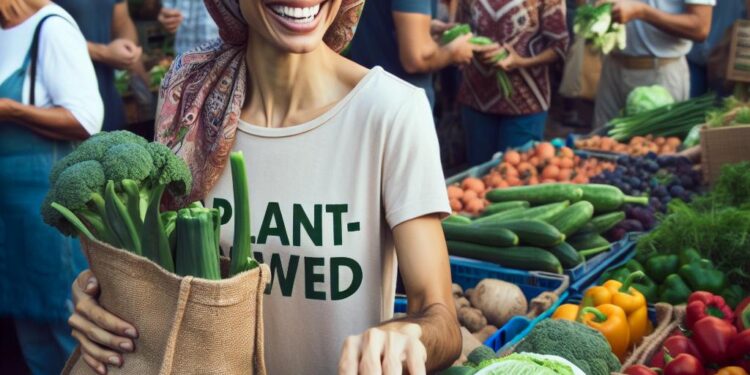Vegan Diets: Ensuring Complete Nutrition is a hot topic for folks keen on embracing a healthier lifestyle. Going vegan can have a huge impact on everyday health, offering benefits like improved digestion and increased energy. However, it’s crucial to understand how to maintain complete nutrition while following this path. Many people worry about missing out on essential nutrients like protein or vitamin B12. This blog aims to bust those misconceptions with clear, practical solutions, ensuring you get the most out of your vegan diet. Let’s dive into some easy tips that’ll have you thriving on plant-based goodness in no time!
How Do Vegan Diets Meet Nutritional Needs?
Thinking about going vegan, or maybe just curious about the vegan diet and how it fits into a healthy lifestyle? Let’s break it down. A vegan diet is all about embracing plant-based foods, skipping out on anything that comes from animals. So we’re talking fruits, veggies, grains, nuts, and seeds. The big idea behind this diet isn’t just to cut out meat and dairy; it’s to ensure that you still get all the nutrients your body needs. It’s like a puzzle—making sure pieces like protein, iron, and calcium fit together perfectly even without animal products. The purpose? It’s a mix of health benefits, ethical reasons, and environmental concerns. In the grand scheme of wellness, vegan diets can help lower risks of heart disease, support weight loss, and boost you with energy, all while staying cruelty-free. Sounds like a win-win, doesn’t it? Adapting to this lifestyle can indeed be a healthy game-changer!Benefits of Vegan Diets: Ensuring Nutrition
If you’re considering a vegan diet to boost your health and fitness, you’re in for a treat—there’s a heap of benefits waiting for you.- Improves Energy Levels: A plant-based diet is rich in complex carbohydrates from whole grains, fruits, and vegetables, which provide sustained energy throughout the day.
- Supports Heart Health: Vegan diets are low in saturated fats and cholesterol, potentially lowering your risk of heart disease, a major concern for many.
- Boosts Digestive Health: The high fibre content found in plant-based foods aids digestion and can prevent constipation, helping you feel lighter and more energetic.
- Reduces Inflammation: Many plant foods have natural anti-inflammatory properties, thanks to antioxidants that can help reduce inflammation and related ailments.
- Enhances Recovery: With an abundance of vitamins and minerals, vegan foods support muscle recovery after workouts, enabling you to keep training hard.
- Supports Long-term Health: Following a well-planned vegan diet can reduce the risk of chronic diseases, such as Type 2 diabetes and certain cancers, aiding longevity.
- Improves Weight Management: Plant-based diets can help in maintaining a healthy weight due to lower calorie density, valuable for both fitness enthusiasts and those looking to shed pounds.
Start a Vegan Diet with Complete Nutrition
Thinking about adopting a vegan lifestyle? It’s crucial to ensure you’re getting all the nutrients your body needs. Let’s break it down into some easy steps:- Explore Plant-Based Proteins
Replace animal proteins with chickpeas, lentils, and tofu. These are great sources of protein and also add variety to your meals. - Include Plenty of Iron
Incorporate foods like spinach, quinoa, and pumpkin seeds. Pair them with vitamin-C-rich foods like oranges to boost iron absorption. - Boost Calcium Intake
Consume fortified plant-based milks and green leafy vegetables, which are rich in calcium. This ensures you’re supporting bone health. - Mind the B12
Opt for fortified foods, like cereals or plant milks, or consider a B12 supplement since it’s commonly found in animal products. - Balance Omega-3s
Flaxseeds and walnuts are excellent sources of Omega-3 fatty acids, essential for heart health.
Quick Home-Based Tips and Guide to ‘Vegan Diets: Ensuring Complete Nutrition’
Quick home-based tips for a complete vegan diet include planning balanced meals with protein-rich legumes and leafy greens. For travelers, carrying nutritious snacks like nuts is key. Office-goers might pack lunch boxes with quinoa and vegetable salads for an energy-boosting midday meal. Beginners can find meal-prep apps or cooking classes helpful for guidance. Seeking professional advice is beneficial when navigating specific dietary needs. Always aim for variety to avoid deficiencies.Budget and Time for a Vegan Diet
Switching to a vegan diet might require an initial time and financial investment to ensure complete nutrition.| Aspect | Average Cost Range | Average Time/Effort |
|---|---|---|
| Personal Consultation | £40 – £150 per session | 1 – 2 hours per session |
| Meal Planning Services | £50 – £200 per month | 5 – 10 hours initially |
| Cooking Classes | £30 – £100 per class | 2 – 4 hours per class |
| Shopping for Vegan Ingredients | N/A | 1 – 3 hours weekly |
| Adopting Lifestyle Changes | N/A | Varies; continuous effort |
| Vegan Supplements | £10 – £50 monthly | N/A |








